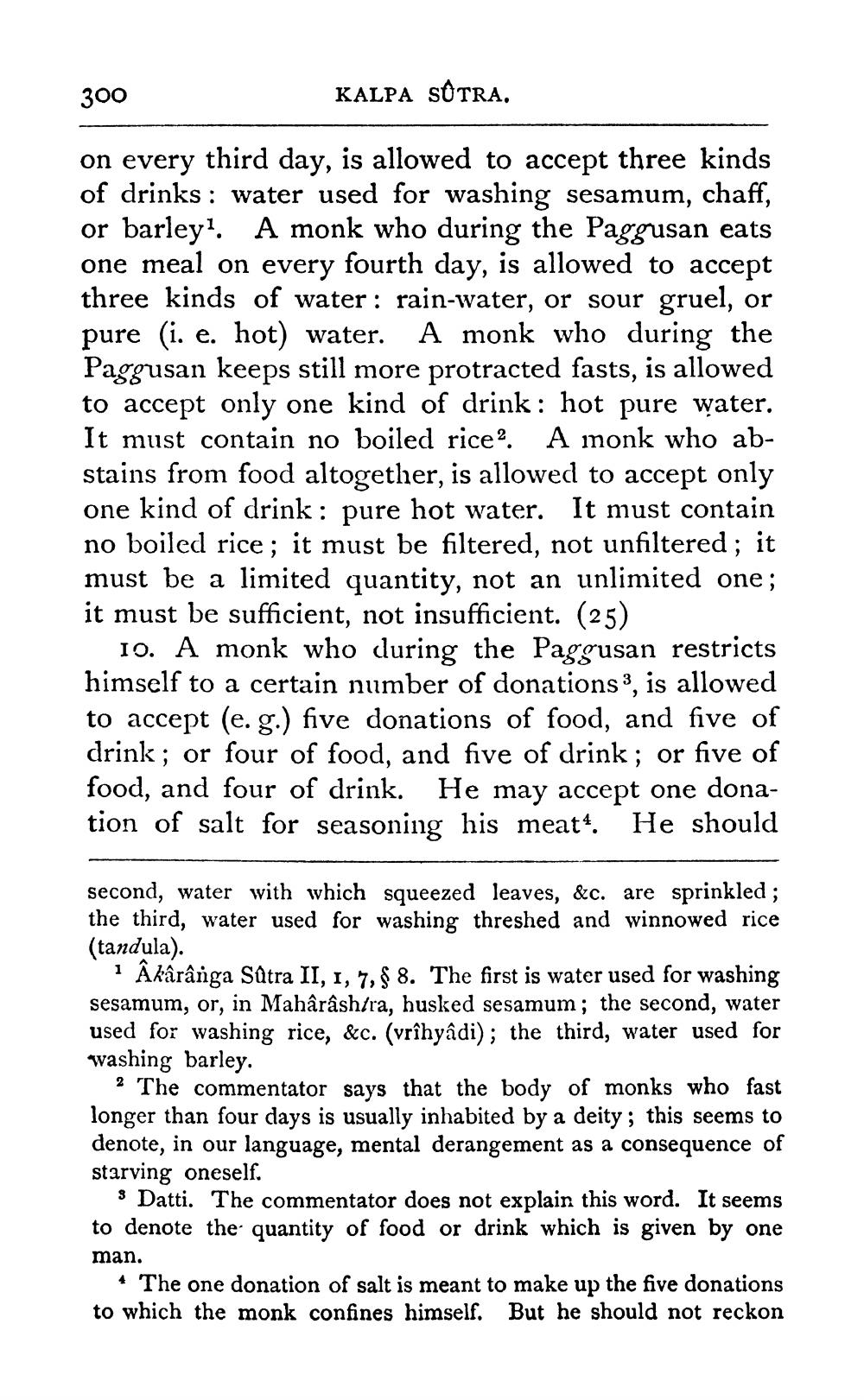________________
300
KALPA SUTRA.
on every third day, is allowed to accept three kinds of drinks : water used for washing sesamum, chaff, or barley? A monk who during the Paggusan eats one meal on every fourth day, is allowed to accept three kinds of water: rain-water, or sour gruel, or pure (i. e. hot water. A monk who during the Paggusan keeps still more protracted fasts, is allowed to accept only one kind of drink: hot pure water. It must contain no boiled rice. A monk who abstains from food altogether, is allowed to accept only one kind of drink: pure hot water. It must contain no boiled rice; it must be filtered, not unfiltered; it must be a limited quantity, not an unlimited one; it must be sufficient, not insufficient. (25)
10. A monk who during the Paggusan restricts himself to a certain number of donations, is allowed to accept (e. g.) five donations of food, and five of drink; or four of food, and five of drink; or five of food, and four of drink. He may accept one donation of salt for seasoning his meat4. He should
second, water with which squeezed leaves, &c. are sprinkled ; the third, water used for washing threshed and winnowed rice (tandula).
1 Akârânga Sätra II, 1, 7, § 8. The first is water used for washing sesamum, or, in Maharashtra, husked sesamum; the second, water used for washing rice, &c. (vrîhyâdi); the third, water used for washing barley.
? The commentator says that the body of monks who fast longer than four days is usually inhabited by a deity; this seems to denote, in our language, mental derangement as a consequence of starving oneself.
s Datti. The commentator does not explain this word. It seems to denote the quantity of food or drink which is given by one
man.
• The one donation of salt is meant to make up the five donations to which the monk confines himself. But he should not reckon




